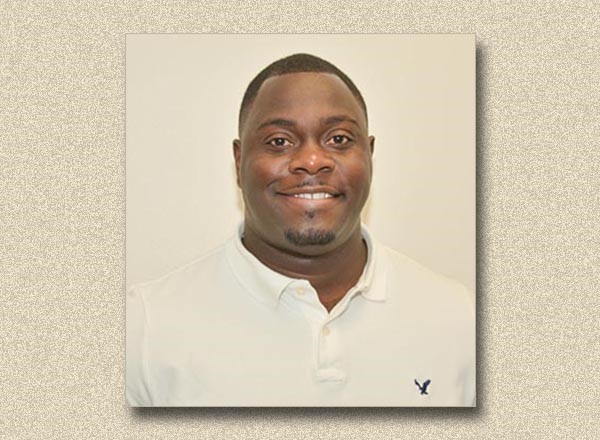Mechatronics grad helps provide high-quality water to communities

Gari Levy is one of 20 people to graduate from the Great Lakes Water Authority’s three-year Electrical Instrumentation Control Technician – Instrumentation (EICT-I) apprenticeship program. Of the 20 apprentices, 19 – including Levy – accepted full-time positions with GLWA.
“The job requires constant learning and ingenuity. I learned the intricacies of how high-quality water is produced and how important my role as an EICT-I is helping to produce and transmit high-quality water,” said Levy, of Southfield, who earned his certification in mechatronics from HFC.
This apprenticeship program was developed in partnership with HFC and Focus: HOPE with approval from the U.S. Department of Labor. Its purpose is to help close the gap in the availability of highly-trained talent to fill skilled technician roles that are imperative to GLWA’s core business of water and wastewater treatment. The apprenticeship provides a “learn while you earn” model that requires 5,200 hours of on-the-job training and 575 hours of classroom instruction – at HFC – with no cost to the participants.
Partnership between HFC, GLWA, and Focus: HOPE
GLWA’s Organizational Development Group, led by chief organizational development officer Terri Tabor Conerway, worked with HFC to develop the apprenticeship training and with Focus: HOPE to develop the pre-apprenticeship program.
The EICT-I position was the first apprenticeship launched by GLWA in 2017. As part of the program, apprentices worked one-on-one with GLWA journey workers/mentors and rotated assignments every six months to gain experience in repairing, testing, calibrating, and installing instruments and control systems, as well as attend customized courses designed specifically by the GLWA at HFC.
“The duties of an EICT-I mainly consist of troubleshooting and performing preventive maintenance,” said Levy. “Preventive maintenance includes calibrating transmitters that measure pressure and flow among other things that the system relies on to ensure the system is run properly and efficiently. Everyone in GLWA relies on the instruments we maintain to work properly in order to do their jobs.”
“It can take a new employee 2-3 years to learn the competencies needed to successfully fulfill the daily tasks required of a skilled water sector position, so on-the-job training is an essential part of the program,” said Conerway. “GLWA is committed to investing in these areas, as this program is crucial to attracting and maintaining the highly-trained talent needed to provide water of unquestionable quality and safe and sanitary wastewater treatment to the people of southeast Michigan.”
Theory and practice complement each other
For Levy, there were two challenging aspects of this apprenticeship program. The first was learning a new device or system requiring research outside of work to better understand how they function. The second was coalescing theory from the classes at HFC into practice while on the job.
“I appreciated the opportunity to attend HFC, where I gained a profound appreciation for the acuity it takes to be an EICT-I. This experience has allowed me to earn a certification in mechatronics, which also has allowed me the opportunity to now work as a full-time EICT-I,” said Levy. “The best part of attending HFC is that all my classes were in the same building. I didn’t have to walk all over the campus for different classes. I walk A LOT on the job.”
“I’m not sure what’s next for me,” he said. “But I do know Henry Ford College will be the school I’ll choose to further my education.”